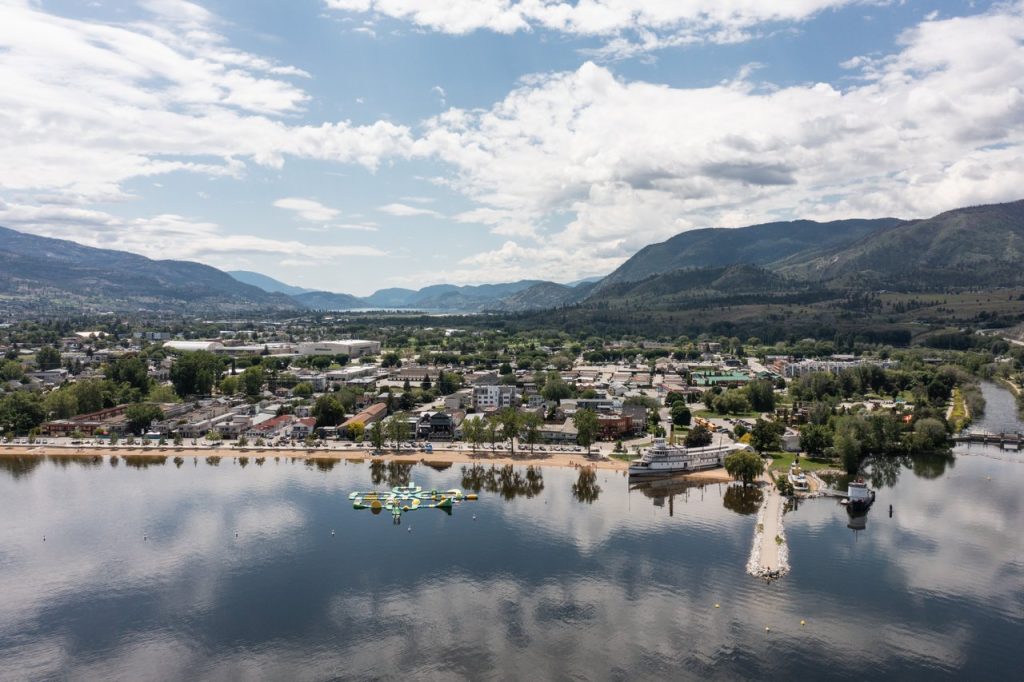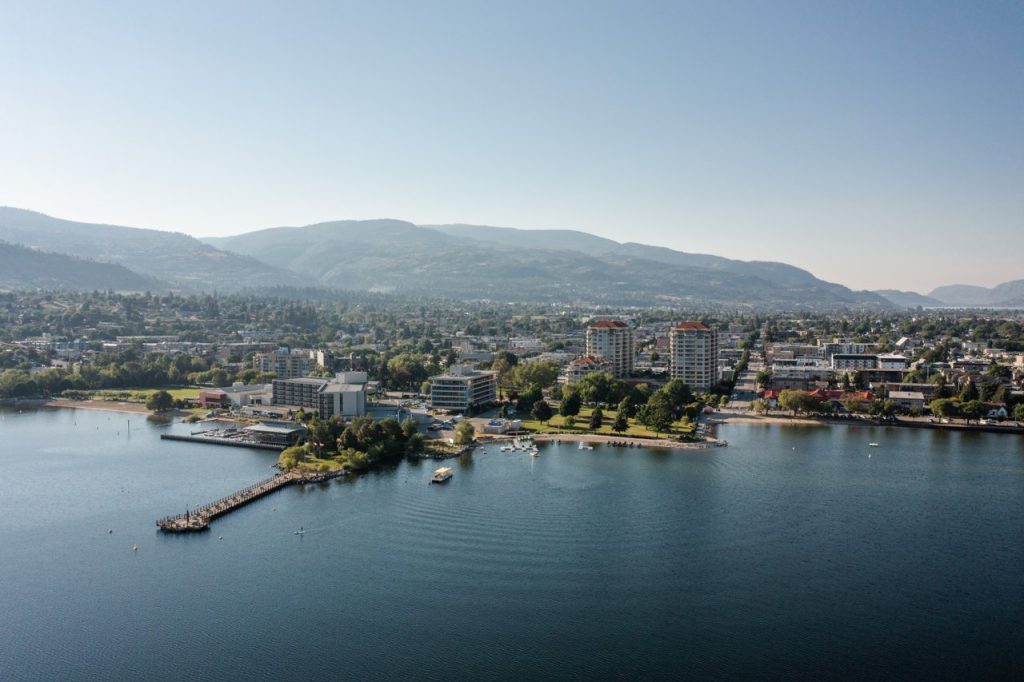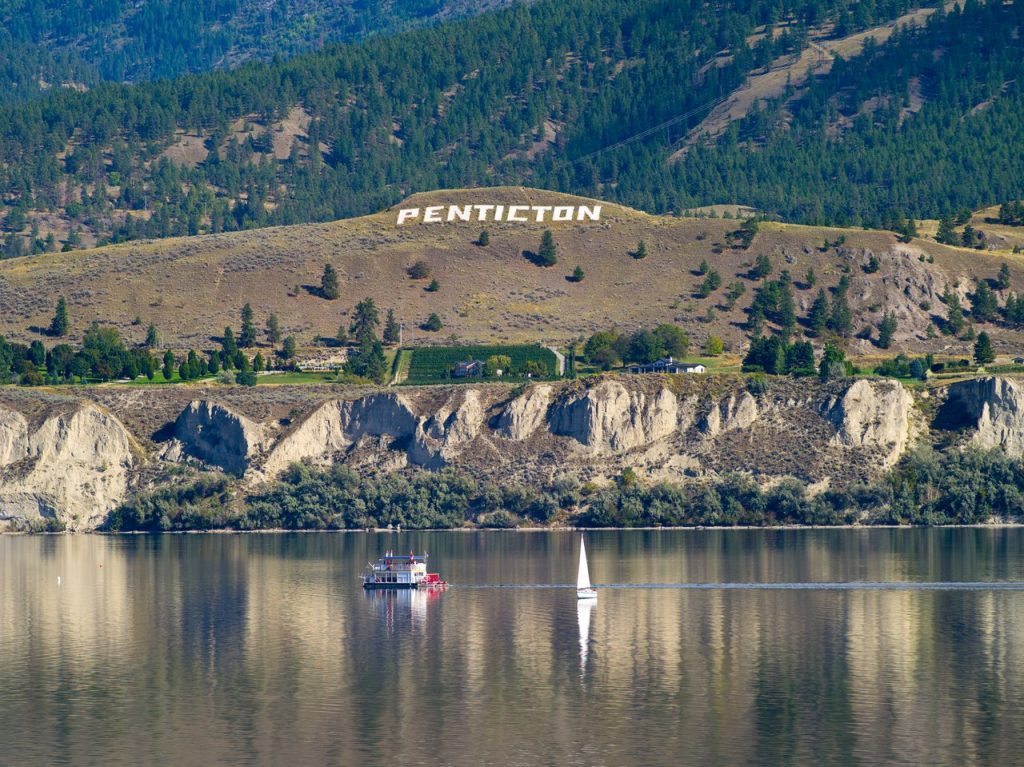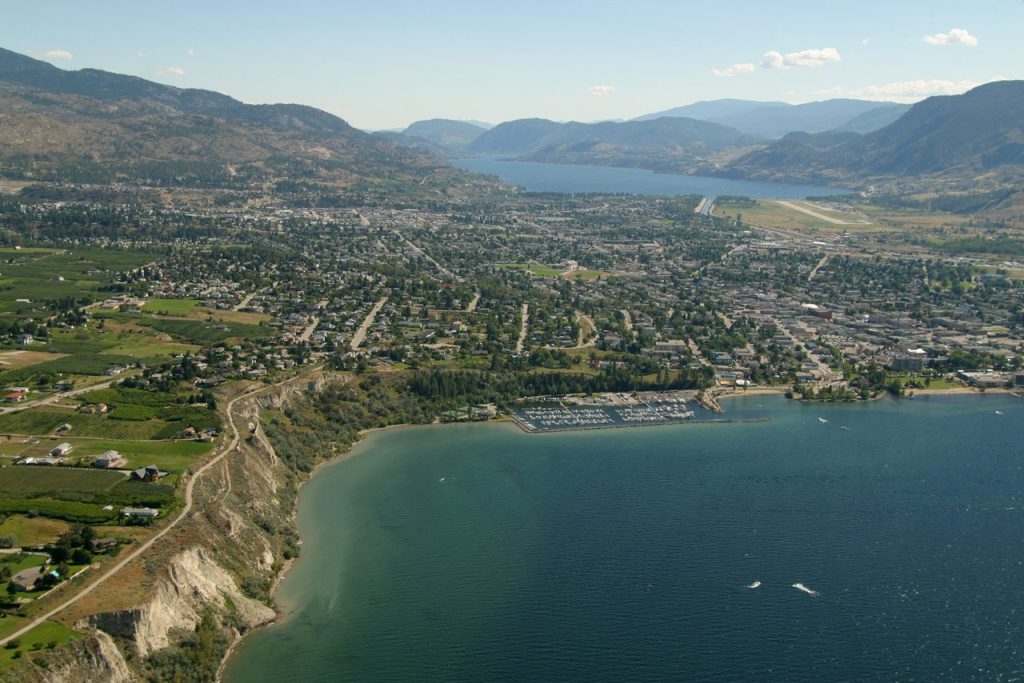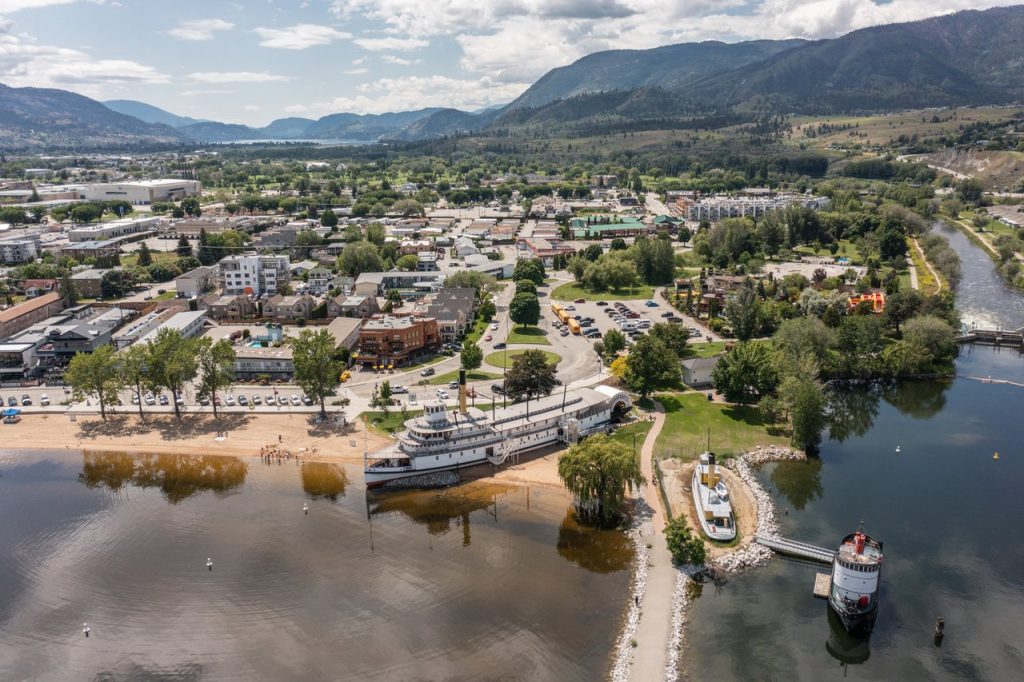Conference Workshops
Tours
Brief Description: Highly accessible field visit to a river restoration project completed in 2022/2023 with hosts from Sylix Okanagan Nation Alliance providing information about boh Sylix world views and knowledge systems and technical and practical applications of fluvial geomorphology, river restoration, and ecological restoration.
Date: Thursday May 29, 2025 Afternoon
Time: 4 hours
Location: nluxʷluxʷɬcwix Lower Trout Creek project site located approximately 15 minutes from the conference venue
Transportation: There will be a bus organized from the conference venue
Cost: $55
Workshops
Brief Description: An interactive and technical workshop focusing on the assessment and design methods behind the stream construction restoration for indigenous species in the Syilx (Okanagan) ecosystem for over 20 years.
Date: Sunday May 25, 2025 Afternoon
Time: 4 hours
Location: Conference venue
Cost: $65
Brief Description: Hosted by the CSHS HydRology R Group, this full-day hands-on workshop is designed for both new and current R software users. Through a combination of instruction, guided exercises, and independent practice, participants will gain practical experience using the programming language R for hydrological analysis.
Date: Sunday May 25, 2025 (full-day)
Location: Conference venue
Cost: $20
Brief Description: Stage measurements are a critical and foundational aspect of hydrometrics but are often overlooked. This workshop will set the stage for good hydrometric data. Includes a classroom component and a field component.
Date: Sunday May 25, 2025 (full-day)
Location: Conference venue – lunch will be provided
Cost: $125
Brief Description: A one-day mini-conference convened for and by users of the Raven hydrological modelling framework. Practitioners and researchers will share their experiences applying Raven to flood and reservoir inflow forecasting, forest management, stream temperature simulation, and climate change impact assessment. Followed by a social event.
Date: Thursday May 29, 2025 (full-day)
Location: Conference venue – lunch will be provided
Cost: $20
Capacity: 30
Brief Description: Good hydrometric data has good meta data. This interactive workshop will have breakout discussions around three proposed topics including the development of a hydrometric apprenticeship framework and syllabus with training modules, data collection best practices, and hydrometric meta data review from a BC RISC perspective.
Date: Thursday May 29, 2025 (full-day)
Location: Conference venue – lunch will be provided
Cost: $125
WORKSHOP 1.0
WATER MANAGEMENT TOOLS FOR THE PRAIRIES: PHYDAP AND MORE
Continuing Education Credits: 3 CEUs
Date: Sunday June 16, 2024 (Half Day – Morning)
Water management on the Prairies must deal with risks from drought, flooding, degraded water quality and climate change. Additional risk comes from using outdated information to make complex water management decisions.
The workshop will expose participants to two tools for water management that were developed by the Prairie Water project team and designed for use by practitioners and researchers. The tools provide data to inform water management decisions and infrastructure design and are the result of over 5 years of Prairie Water research on water management challenges in the region.
- Prairie Hydrology Design and Analysis Product (PHyDAP) – Hydrological data input for hydraulic models to design infrastructure and calculate robust return-period flows (includes historic conditions and future climate projections).
- Data Visualization Dashboard – A tool for viewing and interacting with spatial and temporal data for the Prairies, including a novel watershed classification, hydrological variables and ecosystem services under a range of climate and wetland management scenarios, pesticide application rates and occurrence indices, and groundwater recharge rates. Download links for data included.
Find more information on tools here.
Breaks will be provided.
Facilitators: Kevin Shook, Chris Spence, Colin Whitfield, and Lauren Miranda, University of Saskatchewan
Kevin Shook is the primary developer of PHyDAP. Kevin’s main research areas are the effects of climate change on prairie hydrology and modelling effects of wetlands on prairie basins. Born and raised in Saskatoon, Kevin graduated from U of S College of Engineering in 1984 and returned to U of S as a grad. student and obtained a Ph.D. in 1995 with D.M. Gray, the “father” of Canadian hydrology. He worked for Alberta Environment as flood forecaster 1997–2007. In 2007, Kevin returned to U of S as SGI Canada Research Fellow at the Centre for Hydrology/Global Water Futures.
Chris Spence is Co-Principal Investigator of the research project, Prairie Water, producing PHyDAP and the Dashboard. He works as a research scientist for Environment and Climate Change Canada in Saskatoon and holds adjunct professor appointments at the Universities of Saskatchewan and Manitoba. His research focuses on better understanding hydrological and hydrometeorological processes in cold regions for environmental prediction systems and policy development. Chris was born in Hanna, Alberta and raised in Regina, Saskatchewan. Chris holds a B.A. (Hons.) and M.Sc. from the University of Regina and a Ph.D. from McMaster University.
Colin Whitfield is Co-Principal Investigator of the research project, Prairie Water, producing PHyDAP and the Dashboard. Colin Whitfield is an Associate Professor in the School of Environment and Sustainability and the Global Institute for Water Security at the University of Saskatchewan. He is interested in understanding how pressures from human activities influence water resources and ecosystems, particularly at the watershed scale, and in working with partner organizations to develop solutions to these challenges. Colin’s research spans terrestrial to aquatic systems, including investigations of atmospheric pollution, catchment hydrochemistry, and aquatic greenhouse gas dynamics. He holds a BSc in Environmental Science from Simon Fraser University, and MSc and PhD degrees in Watershed Ecosystems from Trent University.
Lauren Miranda is project manager for Prairie Water, a research project made up of researchers and partners aiming to make water management more sustainable on the Prairies. She holds a B.A.Sc (Hons.) and M.E.S from the University of Saskatchewan. Lauren’s research has focused on wetland greenhouse gas dynamics in the Canadian Prairies.
Prerequisites: A laptop computer that can connect wirelessly to the internet. Experience using the programming language R will be beneficial but is not necessary.
Workshop Fee: $30 Regular/YP/Retired, $15 Student. The workshop is subsidised by Prairie Water – Global Water Futures, University of Saskatchewan
WORKSHOP 2.0
HOW TO USE THE SURFACE WATER AND OCEAN TOPOGRAPHY (SWOT) DATA PRODUCTS FOR WATER RESOURCES RESEARCH AND MANAGEMENT
Continuing Education Credits: 3 CEUs
Date: Sunday June 16, 2024 (Half Day – Afternoon)
The workshop will introduce the participants to the Surface Water and Ocean Topography (SWOT) satellite data products, such as water surface elevation (WSE) and water surface area (WSA) and discuss how they may support water resources research and management. Case study site examples will be used to demonstrate how to access these novel datasets and transform the SWOT WSE measurements to the vertical geodetic datum framework used by the Water Survey of Canada. Using case study examples, a discussion will touch upon the opportunities and challenges of using the SWOT data products. Coding will be provided to the community to download and assist in the processing of SWOT data products.
Breaks will be provided.
Facilitators:
- Daniel Peters, Environment and Climate Change Canada.
- Melanie Trudel, University of Sherbrooke
- Gabriela Siles, University of Laval
Prerequisites: A laptop computer that can connect wirelessly to the internet.
Workshop Fee: $150 Regular/YP/Retired, $125 Student
WORKSHOP 3.0
A GUIDED TOUR OF MACHINE LEARNING FOR HYDROLOGICAL FORECASTING: TIPS, TOOLS, AND TRICKS FOR THE PRACTITIONER
Continuing Education Credits: 6 CEUs
Date: Thursday June 20, 2024 (Full Day)
The workshop aims to place machine learning (ML) tools in the hands of practitioners for hydrological forecasting. The workshop will guide participants through the ML hydrological forecasting “pipeline” with an emphasis on streamflow forecasting. Throughout the workshop, concepts introduced for each step of the forecasting pipeline will be demonstrated live through interactive Jupyter notebooks. Hands-on coding exercises will allow participants to put learned concepts into practice immediately. The goal is for participants to leave the workshop with relevant experience and practical ML tools that can be readily applied to problems encountered in their practice.
The workshop will revolve around the use of Long Short-Term Memory networks (LSTMs) as the main ML tool given its growing prominence in the hydrological sciences. Real-world case studies will form the basis of all exercises, drawing upon open-source datasets. While the emphasis will be on ML models, connections between process-based (e.g., lumped conceptual), ML-based hydrological forecasting will be highlighted, and ML-based streamflow forecasting will be discussed. Topics include data preprocessing, model training/calibration, model evaluation, and out-of-sample verification.
The workshop will conclude with an open-floor Q/A period to share tips and tricks on addressing practical problems faced by participants in their professional practice.
Lunch and breaks will be provided.
Facilitators: John Quilty and Mohammad Sina Jahangir
Bio – John Quilty: John Quilty is an Assistant Professor in the Department of Civil and Environmental Engineering at the University of Waterloo and the Sinnathamby Professor in AI for Sustainable Solutions. Prof. Quilty’s research focuses on innovative tools for addressing the issues of nonlinearity, multiscale change, and uncertainty in hydrological forecasting. Prof. Quilty also serves as an Associate Editor for Journal of Hydrology.
Bio – Mohammad Sina Jahangir: Mohammad Sina Jahangir is a Ph.D. candidate in the Department of Civil and Environmental Engineering at the University of Waterloo, where he works under the supervision of Prof. John Quilty. He has expertise in machine learning model development, design, optimization, and deployment. His research primarily focuses on probabilistic deep learning model development for multiscale hydrological forecasting.
Prerequisites: A laptop computer that can connect wirelessly to the internet
Workshop Fee: $250 Regular/YP/Retired, $175 Student
WORKSHOP 4.0
STRENGTHENING OPERATIONAL FORECASTING – A DELFT-FEWS USER COMMUNITY WORKSHOP
Continuing Education Credits: 6 CEUs
Date: Thursday June 20, 2024 (Full Day)
This Delft-FEWS User Community Workshop is a recurring event where flood forecasters, hydropower operators and researchers to meet and exchange experiences, learn about latest developments in the field and discuss best practice approaches. Although many participants apply the Delft-FEWS platform for their hydrological forecasting, which acts as a shared foundation for collaboration and knowledge exchange, all practitioners in the field of hydrological forecasting are welcome. The workshop will be a mix of presentations, discussions, and mini courses with an emphasis on community building and collaboration. The following topics are foreseen:
- Use of and contribution to CanOpenFEWS: the recently released open forecasting system containing many functionalities shared by North American Delft-FEWS users.
- Use of River Ice Remote Sensing in Operational Practice.
- Physics Informed Machine Learning (PIML) for hydrological and reservoir inflow forecasting.
- Developments in reservoir operation with RTC-Tools.
- New developments in North American operational systems.
Lunch and breaks will be provided.
Facilitator: Dave Casson and Matthijs Lemans
Bio – Dave Casson P.Eng. Ph.D. Candidate: Dave Casson is an expert in the field of cold-regions hydrological forecasting. With experience building and maintaining forecasting systems across Canada, he aims to strengthen the forecasting community and bring research to daily practice.
Bio – Matthijs Lemans: Matthijs Lemans is an expert in the field of hydrological forecasting for flood disaster management and reservoir operations and has great experience with many forecasting agencies in Canada, USA, and internationally.
Workshop Fee: No charge – Sponsored by Deltares
WORKSHOP 5.0
CANCID – IRRIGATION DESIGN
Continuing Education Credits: 6 CEUs
Date: Thursday June 20, 2024 (Full Day)
This full-day workshop is intended to provide a comprehensive understanding of the agronomic and technical aspects of designing irrigation infrastructure plans. The workshop is open to all professionals & students who would like to better understand how modern irrigation projects are planned, designed, and constructed. This workshop will cover fundamental technical concepts covering the spectrum of design applications ranging from on-farm irrigation systems through to large scale water management systems.
During the day, the following topics will be covered:
Topics:
- Overview of irrigation methods and irrigation water management strategies used in Canada.
- Irrigation system design at the field scale.
- Irrigation districts and water delivery.
- Operation of reservoirs, canals, and pipelines.
- Process for new irrigation infrastructure projects.
- Best practices from the field: Case study of Alberta irrigation industry standards
Lunch and breaks will be provided.
Facilitators:
Willemijn Appels, Ph.D., Senior Research Chair, Mueller Irrigation Research Group. Lethbridge College
Even Derdall, M.Sc., P. Eng., Biosystems Engineer, Agriculture and Agri-Food Canada
Chris Gallagher, P. Eng., Senior Irrigation Engineer, Stantec
Denis Matis, Operations and Infrastructure Manager, Alberta Agriculture and Irrigation
Warren Helgason, Ph.D., P.Eng. Associate Professor, Dept. of Civil, Geological, and Environmental Engineering, University of Saskatchewan
Prerequisites: A laptop computer that can connect wirelessly to the internet.
Workshop Fee: $250 Regular/YP/Retired, $175 Student
WORKSHOP 6.0
NASH – FLOW REGATTA AND INTRODUCTION TO HYDROMETRIC DATA COLLECTION WORKSHOP

Continuing Education Credits: 12 CEUs
Date: Thursday June 20 and Friday June 21, 2024 (Two Full Days)
The Flow Regatta workshop will be held on the South Saskatchewan River at Saskatoon. This two-day event will start with an “Introduction to Hydrometric Data Collection” session on the morning of Thursday June 20th at the South Saskatchewan River at Saskatoon hydrometric station. Thursday afternoon will consist of a “Flow Regatta” where discharge measurements will be taken in the vicinity of the gauge. On Friday June 21st the session will consist of a classroom QA/QC review of the discharge measurements conducted on Thursday. The workshop will conclude with a tour to the Saskatoon Southeast Water Supply (SSEWS) canal system in the afternoon.
All levels of hydrometric experience and knowledge are welcome to attend.
On June 20th the ”Introduction to Hydrometric Data Collection” session will highlight the considerations required for a robust stream gauge installation, covering water level data acquisition, benchmark, and datum considerations, and collection of flow measurements using a variety of techniques.
The “Flow Regatta” event focuses on the newest technologies in hydrometrics and allows participants the opportunity to receive hands-on training and develop best practices. There is no requirement or need for experience or prerequisites, as participants will be grouped to maximize their experience.
On June 21st participants will view data collected in a classroom setting. The discharge measurements collected data during the Flow Regatta will undergo QA/QC and quality grading consideration will be discussed.
A tour to a modern and efficiently designed hydrometric station at the SSEWS canal system near Blackstrap Lake will conclude the workshop. Discussion will center around design and installation.
The flow regatta session provides an invaluable discussion forum for hydrometric data collection including how to estimate uncertainty, choosing the best sites to measure discharge using the different methods, and developing best practices for emerging technologies. For those interested in non-contact gauging there will be training on the standardized alpha velocity determination plus our event sponsors will be on hand demonstrating their latest data loggers, hydrometric equipment, and telemetry options.
Participants are encouraged to bring their own instruments to measure and calculate discharge against the Water Survey of Canada rating curve on the South Saskatchewan River at Saskatoon. Participants will battle it out for top prize and bragging rights as they aim to measure, within uncertainty, the objectively determined “true” flow.
Transportation to the site is available upon request.
Lunches will be provided.
NASH is planning a networking event with our colleagues on Thursday night, June 20th at a TBD location in downtown Saskatoon. We encourage you to come celebrate with our event sponsors and fellow members and participants of the NASH workshop and regatta.
Facilitators:
- Cam MacDonald, Water Security Agency (Saskatchewan).
- Derek Brzoza, Northwest Hydraulic Consultants.
- Special guest Kevin Oberg, USGS ADCP expert as well as SonTek Representatives, YSI Incorporated.
Cam MacDonald: Born and raised on the prairies, Cam is a graduate of Water Resources Engineering Technology from SIAST (Saskatchewan Polytechnic). He started his career in hydrometrics for Water Survey of Canada in Peace River Alberta and eventually moved to work in the Regina office. From there Cam took an opportunity for the Province of Saskatchewan at what now is known as the Water Security Agency. As a supervisor for the hydrometric field staff serving a network of 145 gauging stations Cam has acquired skills in all facets of the hydrometric world. Cam currently sits as the Vice President of the NASH organization.
Prerequisites: Participants will need to bring suitable field clothing and waders and a laptop that can connect wirelessly to the internet.
Workshop Fee:
- $250 Regular/YP/Retired, $150 Student for the two-day event.
- $200 Regular/YP/Retired, $100 Student for the one-day June 20th event.
WORKSHOP 7.0
INDIGENOUS RELATIONSHIPS TO WATER AND THE PRACTICAL APPLICATION OF FIRST NATIONS’ WORLDVIEW TO WATER REGULATIONS AND STANDARDS
Continuing Education Credits: 3 CEUs
Date: Sunday June 16 (Afternoon)
First Nations have a unique relationship to water that is based on reciprocity and stewardship. According to traditional understandings, we care for water, and water cares for us. Despite these cultural understandings, First Nations communities have struggled with ensuring drinkable water, sustainable sources, and protection of the water on their lands due to reduced capacity, continued colonization, and systemic racism.
This workshop will first highlight some of the root causes of the struggle to ensure drinkable water in communities and the continued fight against inadequate policies and a lack of regulations and standards for drinking water, wastewater, and source water protection.
In the second portion of the workshop, an Elder will share their experiences and understanding of the Indigenous worldview of water and how humans can strive for a better relationship with this life-giving source.
The third portion of the workshop will focus on the approach that some Saskatchewan First Nations water systems operators and technicians adopt in the application of their worldview with their water systems. This portion will also provide concrete examples of how the ecosystem-based, multiple-bottom-line approach to the Saskatchewan First Nations Drinkable Water Regulations and Standards and Wastewater Regulations and Standards can be adopted by communities in Saskatchewan.
Facilitators:
- Rebecca Zagozewski, Executive Director, The Saskatchewan First Nations Water Association
- Deon Hassler, President, The Saskatchewan First Nations Water Association
- Elder (TBD)
Prerequisites: None (recommended to bring notebook, pen and if desired a laptop that can connect wirelessly to the internet)
Workshop Fee:
- $150 Regular/YP/Retired, $100 Student
Note: All workshops except Workshop 6.0 (NASH – FLOW REGATTA AND INTRODUCTION TO HYDROMETRIC DATA COLLECTION WORKSHOP) will take place at TCU Place.
Thank you to our event sponsors!
Call for Workshops followed by info regarding the date(s) and cutoff for registration.
*****Make sure that after each workshop there’s a separator*****
Below you will find the workshops and tours being offered in tandem with the #CWRA2023 National Conference. To see the times and dates of the workshops and tours in relation to the conference sessions, please visit the Program page.
Please note that Registration for Workshops can be purchased separately from Conference Registration and Tours may be subject to cancellation and a full refund will be issued if there is not enough attendance
Workshops
Workshop #1: Vector-based watershed and routing network delineation with lakes: BasinMaker software & lake-
river routing products
Directors: Bryan A. Tolson, Ming Han, Hongren Shen, and James R. Craig (Department of Civil and Environmental Engineering, University of Waterloo, Waterloo, Ontario, Canada)
Date: Thursday, June 22nd, 2023, 9:00 AM – 12:00 PM
Fees:
$50 professional
$25 student
About: This workshop will show you how you can delineate and customize the resolution of the subbasin-level lake-
river routing networks of watersheds of interest across Canada. You will benefit from this workshop if you answer yes to any one or more of the following questions:
- Do you need the watershed boundary or a lake-river routing network delineated for a Water
Survey of Canada streamflow station? - Are you doing any work on any of Canada’s hundreds of thousands of lakes that are larger than
10 ha in area and need to determine where lake inflows come from and where lake outflows
go? - Are you interested in the watershed and/or lake-river routing network for any other point of
interest? - Are you a hydrologic modeller looking to determine semi-distributed hydrologic model inputs
describing channel routing characteristics and topology and in particular keen to explicitly
simulate lake levels across your watershed? - Do you build semi-distributed hydrologic models with the Raven Hydrological Modelling
Framework? - Do you need to find a site-specific estimate for common lake, river channel or subbasin
geospatial attribute (channel roughness, area, slope, aspect etc.)?
We will demonstrate how you can do any of these things on the cloud without complex geospatial processing and without any software installed on your local computer. The workshop will begin with a presentation on the BasinMaker software (Han et al., accepted, see also http://hydrology.uwaterloo.ca/basinmaker/) and the large-scale lake-river routing products produced with Basinmaker by the UWaterloo BasinMaker development team (various CWRA conference presentations on these topics in 2021 and 2022 and again this year). The workshop will then explore our team’s multiple available lake-river routing products available online in ESRI shapefile format:
- North American Lake-River Routing Product (derived from 90 m DEM and HydroLAKES polygons,
~10 km 2 average subbasin area and 650,971 lakes).
See: http://hydrology.uwaterloo.ca/basinmaker/download_regional.html - The Ontario Lake-River Routing Product (derived from 30 m flow direction grid and HydroLAKES
polygons, ~5km 2 average subbasin area and 82,001 lakes). See: https://lake-river-routing-
products-uwaterloo.hub.arcgis.com/ - The Canadian Lake-River Hydrofabric being currently developed by our University of Waterloo
team that will be presented at the conference this year (derived from a pan-Canadian 30 m flow
direction grid and HydroLAKES polygons, ~5km 2 average subbasin area)
Hands-on exercises with participants’ computers will show how to use BasinMaker software online Google Colab in network post-processing mode. Specifically, hands-on exercises will walk you through how to extract a drainage network for your point of interest from the three routing products and customize the resulting lake-river routing network (e.g., simplify it by removing small lakes, reducing the number of subbasins) to the resolution appropriate for your case study. In addition, you will see how to use the online software to discretize subbasins into Hydrologic Response Units (HRUs) and automatically create Raven model input files encapsulating the routing network topology and characteristics. Finally, you will see how to view routing networks with the RavenView online software (http://raven.uwaterloo.ca/RavenView/RavenView.html). Importantly, none of the exercises rely on you installing software locally on your computers.
Requirements/Prerequisites:
- A laptop computer that can connect wirelessly to the internet
- A Google account (e.g., sign-up here: https://www.google.com/account/about/)
- An interest in distributed or semi-distributed watershed discretization/modelling
Workshop #2: FLOW REGATTA TRAINING HOSTED BY NORTH AMERICAN STREAM HYDROGRAPHERS!
NASH is pleased to announce it will be hosting a Flow Regatta Training event on the Sackville
River in the beautiful community of Bedford. The multi-session event will occur on Sunday and
Thursday, June 18th and 22nd, respectively. This two-day event will include an “Introduction to Hydrometric Data Collection” workshop on Sunday in Bedford and a Flow Regatta Thursday afternoon in Bedford. In addition to the workshops NASH would like to host a sponsored celebration for the 1 st year NASH has run the regatta as a registered affiliate of the CWRA. This celebration is scheduled for Saturday evening, prior to the introductory course, in Halifax at a location TBD. Stay tuned!
June 18th – The “Introduction to Hydrometric Data Collection” workshop will highlight the considerations required for a robust stream gauge installation, water level and meteorological data acquisition, benchmark and datum considerations, and collection of flow measurements using a variety of techniques and a QA/QC of the collected data and grade the quality appropriately. The workshop will be held at Sackville River at Bedford from 9 am to 4:30 pm. June 22nd – Flow Regatta training event will take place at Sackville River at Bedford from 12 pm (noon) to 4:30 pm on Thursday. The training event focuses on the newest technologies emerging in hydrometrics and allows participants the opportunity to get hands-on training and develop their best practices. Training will be provided on:
- Salt Dilution: Around for decades, this tried and true method is easy and accurate in turbulent water with cross-channel mixing.
- ADV Gauging: The evolution of current metering, the newest meters sport automatic depth measurement, Q calculation, and uncertainty estimates.
- Transparent Head Velocity Rod: This novel technique offers a low-cost alternative to conventional current meters.
- Non Contact Measurements: Including Image Velocimetry (LSPIV, STIV, and SSIV)
- Radar: Like ADCP before it, many of the world's hydrometric agencies are investigating these non-contact, autonomous methods to capture the average surface velocity and estimate the total flow.
Flow regatta training provides an invaluable discussion forum for hydrometric data collection including; how to estimate uncertainty, choosing the best sites to measure discharge using the different methods, and developing best practices for emerging technologies. For those interested in non-contact gauging we will be further researching and providing training on the standardized alpha velocity determination plus our event sponsors will be on hand demonstrating their latest data loggers, hydrometric equipment, and telemetry options. Participants are encouraged to bring their own instruments to measure and calculate discharge against the Water Survey of Canada rating curve on the Sackville River at Bedford. Participants will battle it out for the top prize and bragging rights as they aim to measure, within uncertainty, the objectively determined flow.
2023 marks the first conference in which NASH is holding these workshops as an affiliate member organization of the CWRA! You can expect a celebration as NASH is planning a networking event with our colleagues on Saturday night, June 17th at a TBD location in Halifax. We encourage you to come to celebrate with our event sponsors and fellow members prior to the
NASH workshop and regatta. Packed lunches will be provided. Transportation is available upon request. Please bring weather-appropriate clothing and waders. The 9 am start time is at Bedford; the meet-up location is the parking lot near the Sackville River near Bedford hydrometric station off Bedford Highway 2 across from the McDonalds; See map for details.
The cost of the event is $100 for the Introduction to Hydrometric Course and $50 for the Flow
Regatta. All levels of hydrometric experience and knowledge are welcome to attend either
event!
Don’t forget to check out the NASH web page https://nash.cwra.org/ and sign up for our mailing
list!
Thank you to our event sponsors!
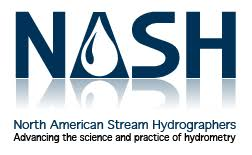
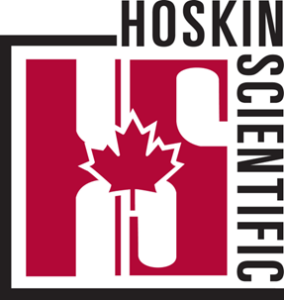
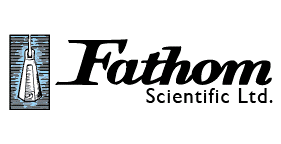

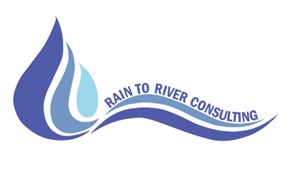
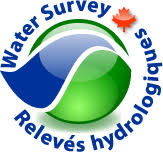
Workshop #3: Integrated Hydrologic Modelling using HydroGeoSphere
Date: Sunday, June 18, 2022, 8:30 AM – 5:00 PM
Join the Aquanty team for a 1-day intensive course which explores the complete integrated hydrologic modelling process using HydroGeoSphere (HGS). This course includes a short session to explore the capabilities of HGS and the governing equations which power this integrated modelling platform, but the focus of the course is primarily on the practical aspects of using HGS. Attendees will explore the entire HGS modelling workflow, from model mesh generation using AlgoMesh to results visualization using ParaView. Significant time will be dedicated to exploring the command-based language used to construct HGS model input files and the data requirements for constructing integrated groundwater-surface water models. You will also benefit from an overview of numerical solution techniques/best practices, model convergence troubleshooting, how to implement particle tracing, and the basics of introducing 1D & 2D hydraulic features to HydroGeoSphere models (e.g. channels, tile drains, fractures, etc.).
Attendees of this course will receive a temporary license of HydroGeoSphere (30-day), a temporary license of AlgoMesh (2 weeks), a copy of all course content including lectures (PDF) and exercises, and the opportunity to network with other HydroGeoSphere users and the software development team.
Prerequisites:
There are no firm prerequisites for this course, but as HydroGeoSphere is a fully integrated (groundwater & surface water) simulation platform attendees will benefit from basic knowledge of principles and best practices of hydrologic modelling (e.g., development of conceptual models, use of boundary conditions, numerical solution methods, etc.).
Fees:
$200 professionals
$50 students
Tours
Tour #1 – Annapolis Valley Wine Tour and Technical Talk on Hydrology and Restoration of the Bay of Fundy Dykeland
Date and time: Wednesday, June 21st at 4:30 pm
Provider: Grape Escapes https://www.
Price: $289 all in per person
Description:
Enjoy a scenic drive into the Annapolis Valley to experience Benjamin Bridge and Luckett Vinyard in the heart of Nova Scotia’s award-winning wine country. Relax, connect and sip your way through the stunning Annapolis Valley and learn about our cool climate wines. The tour will include a short technical talk on the hydrology and nature-based solutions research conducted in the Acadian Dykeland by Professor Dr. Danika Van Proosdij from Saint Mary’s University. (https://www.
Included in the package: Transportation, wine tasting at Benjamin Bridge, technical talk, and a welcome glass of wine at Luckett’s vineyard and dinner. Included is a 4-course dinner in the wine cellar. Vegetarian and other options are available by sending in a request in advance. Please email jenny.hwrd@gmail.com to place a request.
The vineyards can be viewed here: https://benjaminbridge.com/
Itinerary:
4:30 pm Meet at the lobby of the Westin to board the tour bus
6:00 – 7:00 pm Wine tasting at Benjamin Bridge Vineyard
7:00 – 7:30 pm Technical talk on dykeland hydrology and restoration
7:40 – 9:30 pm Wine tasting and dinner at Luckett’s Vineyard
9:30 – 10:30 pm Transport back to the Westin
Tour #2 – Sea Kayaking Tour and BBQ/Mussel Boil
Date and time: Friday June 23rd at 3:45pm
Provider: East Coast Outfitters https://www.
Price: $207 all in per person
Description:
Submerse yourself in the beauty of Canada’s Ocean playground during a 2-hour guided sea kayaking tour along the Atlantic Coast 30 minutes outside of Halifax. Relax and enjoy a BBQ and mussel boil at the end of the tour on the wharf by the ocean.
Included in the package: Transportation, guided kayak tour, BBQ (vegetarian options included), and mussel boil.
Weather dependent: In the case of adverse weather, an alternate rain date of Saturday, June 24th will be planned. Unfortunately, no refunds can be issued if the alternate date cannot be attended by the registrant. Questions can be directed to: Jenny.hwrd@gmail.com. Please bring warm clothing regardless of the date!
Itinerary:
3:45 pm Meet at the lobby of the Westin to board the tour bus
5:00 – 5:45 pm Arrive at East Coast Outfitters for orientation
5:45 – 7:45 pm Guided kayak tour
7:45 – 9:00 pm BBQ and mussel boil
9:00 – 9:30 pm Transport back to the Westin


